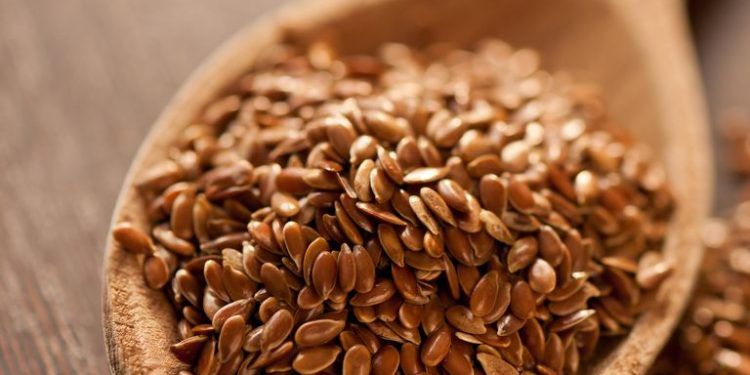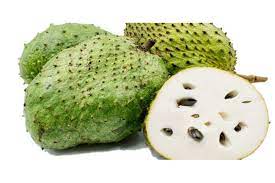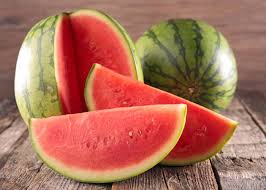I just finished watching something horrible on YouTube. In what can only be described as an alien transmission cloaked in a nutritional recommendation, “How To Lose Belly Fat in 10 Days Using Flaxseed Water 10 Kilos in Just 10 Days” has me stunned.
Let’s say that you can make it past the creepy robot woman stuttering through the phrase “Keep to know all about this ‘Genie in a seed’ that will help you to chisel your beautiful figure in a few days.” Then you will learn that in order to lose weight you must drink “a thick, viscous mixture” of whole flaxseeds soaked in water three or four times a day after meals in order to cleanse your colon of extra weight.
Look, please don’t do this—or any of these other crazy cleanses or detoxes you happen across on the weirder side of the Internet.
There’s some truth about the weight-loss beneits of flaxseeds, but you do not (repeat: DO NOT) have to drink weirdo flax shakes in order to experience them. Allow me to explain…
What Are Flaxseeds?
They come from the flax, or linseed, plant. It’s a big grassy-looking thing that has been around as long as civilization, but most societies used the plant’s fibers for the production of clothing. Flax has only made its way into health foods products within the last 15 years, according to the Agricultural Marketing Resource Center.
Flaxseeds themselves are low in calories, high in fiber, and contain plant-based omega-3 fatty acids. One tablespoon of ground flaxseeds has 37 calories, two grams of fiber, and one gram of protein.
And the taste? Well, they’re nutty, in a subtle way.
What the Science Says about Flaxseeds and Weight Loss
Well, not much, actually. Part of this dearth of scientific research may come from the previously mentioned fact that the public didn’t consider flaxseeds a health food until recently.
The studies that have shown promise in regard to a diet of flaxseed (or flaxseed oil) and weight loss have largely been conducted on mice. So unless you’re a highly intelligent rodent reading this article, take the claims you view in videos such as “How To Lose Belly Fat in 10 Days Using Flaxseed Water 10 Kilos in Just 10 Days” with a dose of caution.
The one human study that did receive attention connecting flaxseed supplementation and weight loss suffered a retraction. The reason: “concerns … with respect to the methods and the statistical analysis.”
To help clear things up, a group of Iranian and Canadian researchers published a review in 2017 of flaxseed and body weight studies. Their findings were threefold:
- The reason flaxseed supplementation may have helped rodents lose weight is due to lignans, a plant compound with disease-fighting antioxidant powers. However, of the five studies reviewed, none found that supplementation with lignans proved a similar weight loss effect in humans.
- It’s the fiber in flaxseeds that may lead to weight loss in human study participants. That’s because fiber fills you up and helps you stay full. For this reason, the researchers found whole flaxseed supplementation to be effective, while flaxseed oil (which is devoid of fiber) was not.
- The greater the BMI of the person supplementing with flaxseeds the more pronounced the effect. And, sorry guys, but women who supplemented their diet with flaxseeds experiences greater weight loss than men who did the same.
The Bottom Line
There’s nothing inherently magical about flaxseeds EXCEPT that they are a powerful source of fiber—a nutrient that most people don’t eat enough of. Fiber has been proven, through rigorous scientific research, to help you lose weight, as well as help your heart and prevent hosts of deadly diseases.
If you’re curious about flaxseeds, go ahead and buy a bag. You can buy them ground or ground them up yourself and then try them sprinkled on your yogurt, oatmeal, or, heck, even pasta. If you love the stuff, congratulations. You’ve just found a new way to work fiber into your diet. Hate the stuff? Find your fiber elsewhere.































